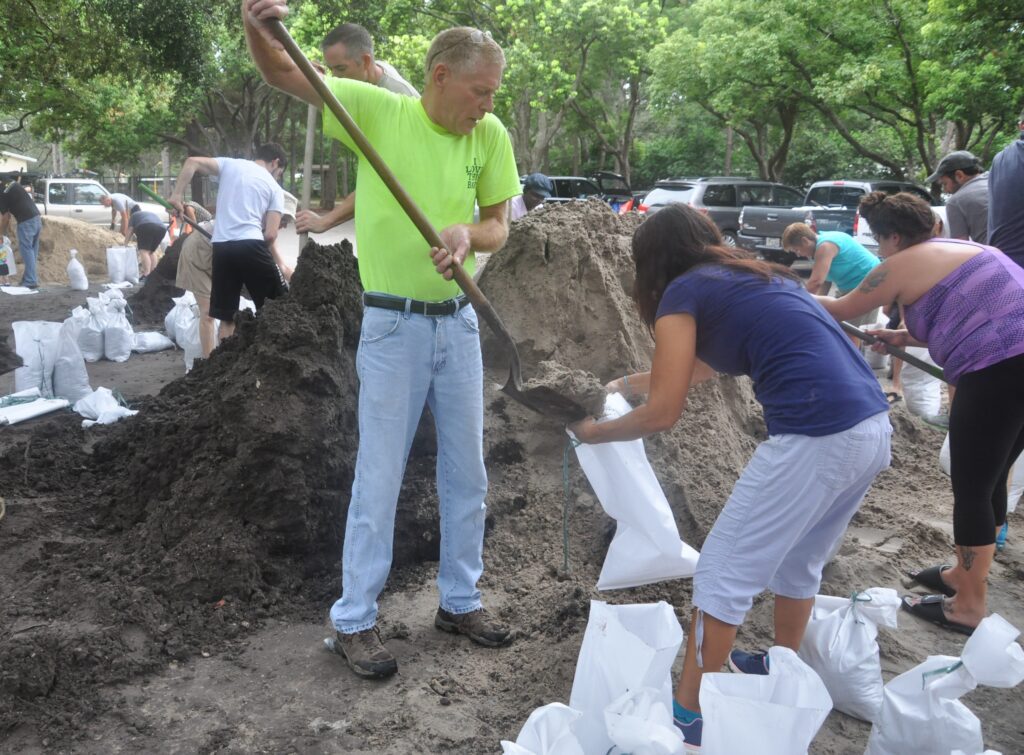Sandbags and Other Flood Barriers
Prepare for hurricane season by getting your sandbags early. Keep a lookout for County or municipal self-serve sandbag events or purchase them from your local hardware store (Some hardware stores offer them online). Sandbag distribution sites typically end up with long lines before a storm, keeping residents tied up in traffic lines and away from other important preparedness work. You can get sandbags in a lower-stress setting by getting them early; check with your municipality or check this webpage for updates about sandbag distribution events.
There are several alternatives to sandbags, including flood bags and barriers, flood gates and water-activated dams. Most of these are reusable. They are available at most home improvement stores and may offer more protection than sandbags. When the County does offer sandbags, residents are limited to 10 in order to help as many people as possible. That’s enough to protect one doorway to a height of approximately 15 inches.
Note: Sandbags are only recommended for residents who may experience flooding less than 15 inches from rain or tides. Sandbags won’t stop water completely, but they can reduce the amount of water entering your home. They will not protect against waves and storm surge associated with larger storms.

How to Use Sandbags and Sandbag Alternatives
Sandbag Reuse and Disposal
For sandbags that did NOT come into contact with floodwaters:
- Keep and store clean sandbags to reuse them for future storms. Hurricane season runs from June 1 through Nov. 30, with most major storms occurring between mid-August and late October. It’s best to store sandbags in a cool, dry area indoors or under cover.
- To dispose of clean sandbags, spread the sand on lawns or landscape beds. Place the empty bags in your garbage bin (not your recycling bin).
- Do not dump sandbags onto the beach. Sand used to help stop flooding may be different from beach sand and can cause issues for turtle nesting, among other problems.
For sandbags that have come into contact with floodwaters:
- Sandbags that have been in contact with floodwaters may be contaminated by sewage, animal waste, oil, lawn chemicals or other hazardous chemicals. Wear gloves and a dust mask when handling potentially contaminated materials. Do not place used sand in or near bodies of water, playgrounds, sandboxes or other areas of direct human contact.
- Bring used sandbags, separated from other waste to the Pinellas County Solid Waste Disposal Complex, 3095 114th Ave. N., St. Petersburg. Disposal fees apply.
Please do not put sand or full sandbags in your regular trash or yard waste. The sand does not burn and will not convert to energy in the County’s Waste-to-Energy Facility. Do not mix sandbags with yard debris for disposal. The sand is abrasive and damages equipment used to grind yard debris into mulch.